The latest Australian national accounts from the Australian Bureau of Statistics (ABS) showed that real household disposable income per capita collapsed by around 6% in the year to September 2023 to be tracking at around 2012 levels:
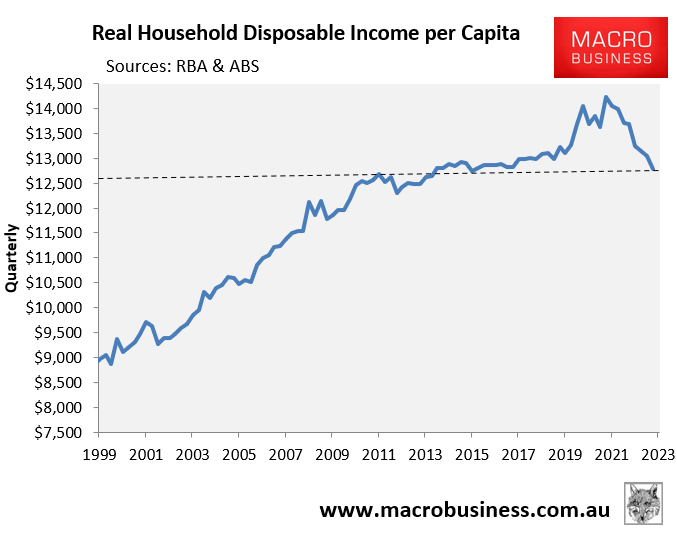
The AFR’s Michael Read has compared Australia’s fall in real household disposable income against other nations in the table below, derived from OECD data:
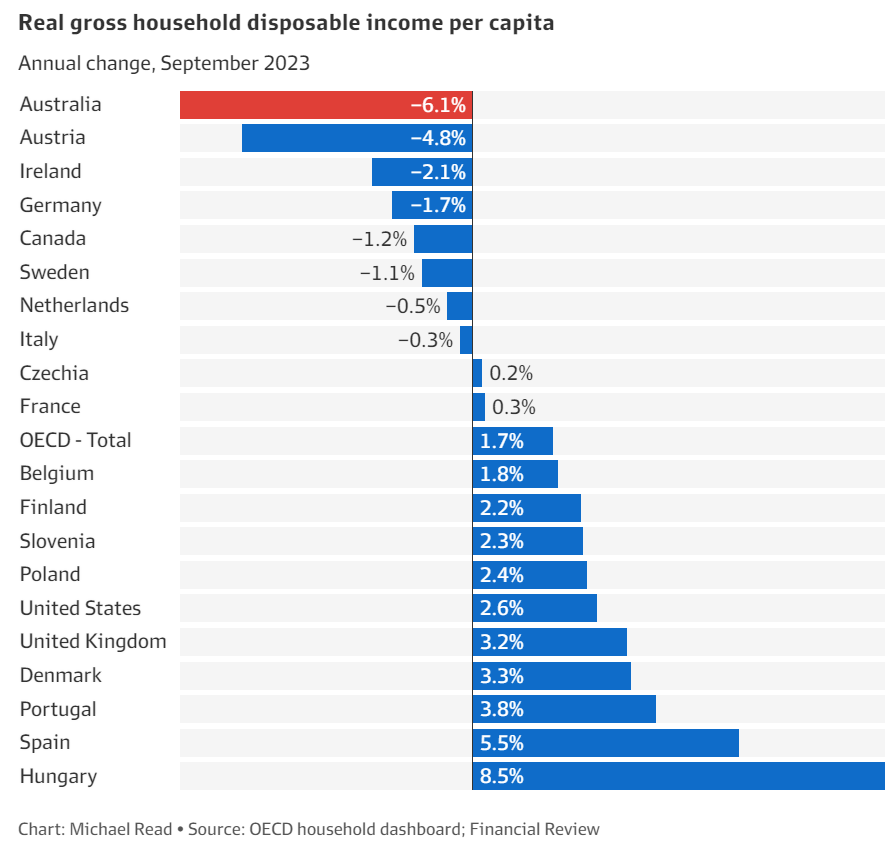
As you can see, Australia’s decline in real household disposable income per capita was the largest in the year to September, some 7.8% worse than the average gain of 1.7% across the OECD.
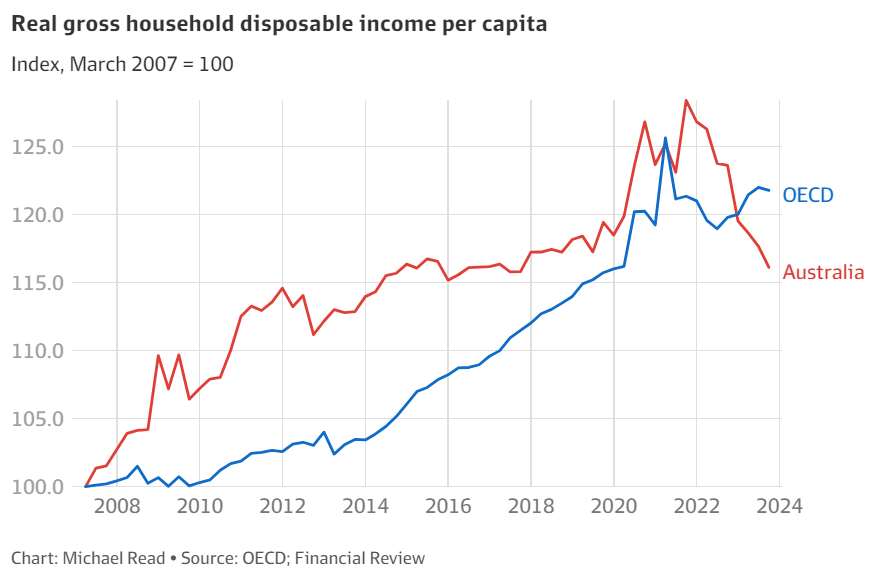
“In the current environment, real household disposable income per capita is one of the best measures of how Australian households are feeling”, Deloitte Access Economics partner Stephen Smith said.
“It calculates income after taking account of inflation and population growth, and after taking account of taxes and mortgage payments”.
“Households have been dealing with the cost of living challenges that elevated inflation and rising interest rates impose”.
“At the same time, bracket creep is ratcheting up the average rate of tax paid, while aggregate measures of income and economic growth are being driven by population growth, not productivity”, Smith said.
To add further insult to injury, economist Chris Richardson projects that Australia’s real household disposable income per capita won’t recover to 2015 levels until 2026:
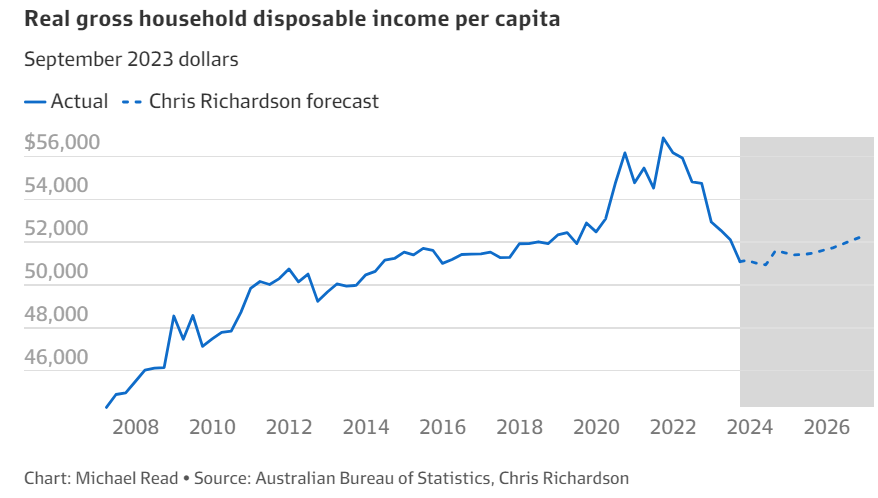
It is a similar story for real wages. The next chart from Alex Joiner at IFM Investors plots the Reserve Bank of Australia’s projections and shows that Australian real wages will be 3.5% below their 2019 level by 2026:
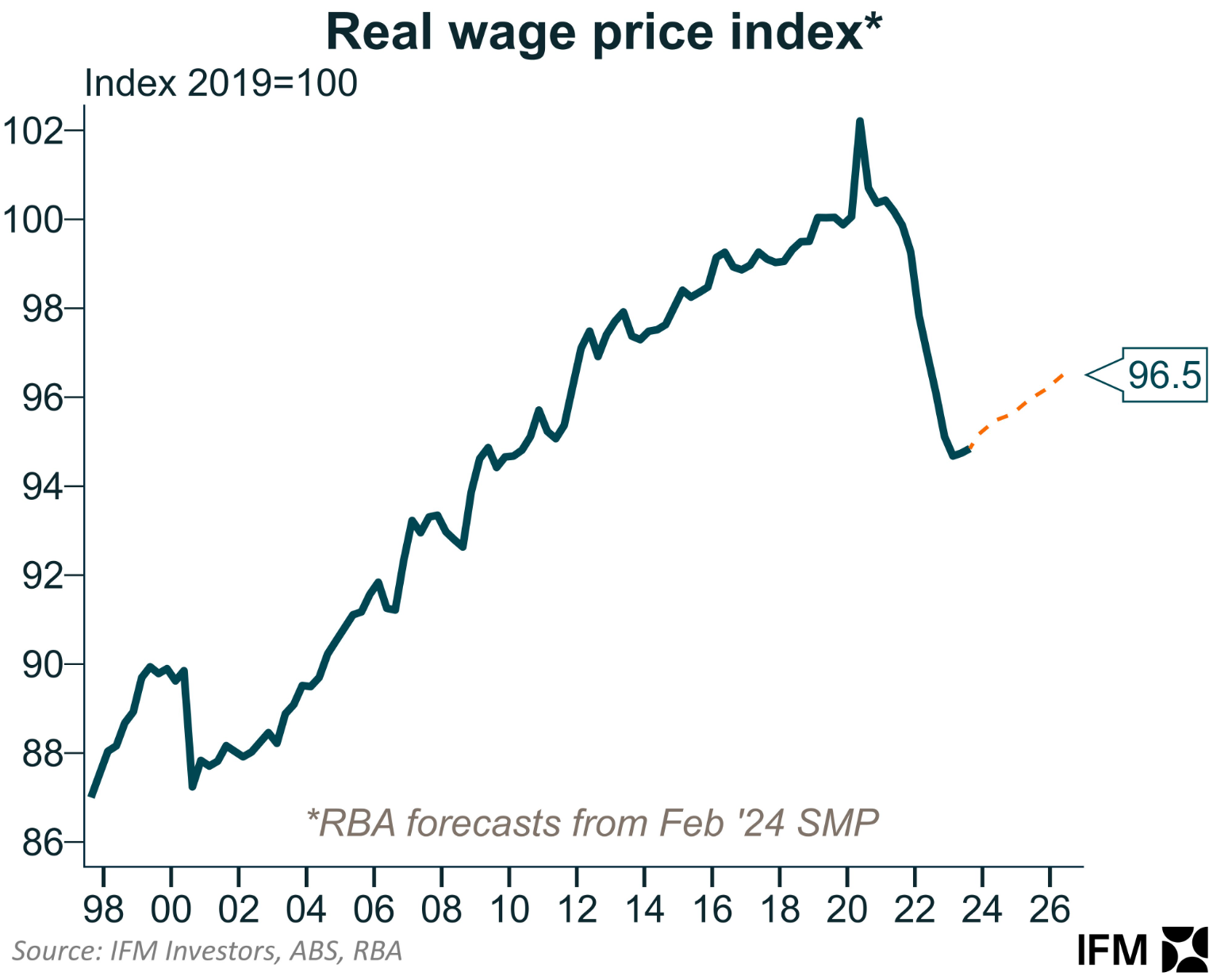
Australia’s collapse in living standards extends beyond household incomes.
Late last year, Bloomberg reported that Australia had the lowest rental availability, with a rental vacancy rate of just 0.9%, which was the lowest out of the countries surveyed:

Underpinning the collapse in living standards is the federal government’s extreme immigration policy.
Australia recorded 518,000 net overseas migration in 2022-23, which was by far the largest intake on record:
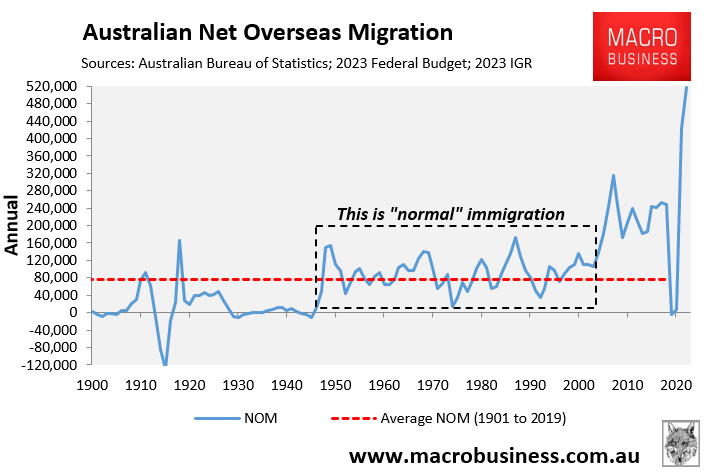
This extreme net overseas migration helped to place downward pressure on household incomes, has driven the nation’s rental vacancy rate to historical lows, and crush-loaded everything in sight.
The upshot is that Australians face another ‘lost decade’ of falling living standards.

